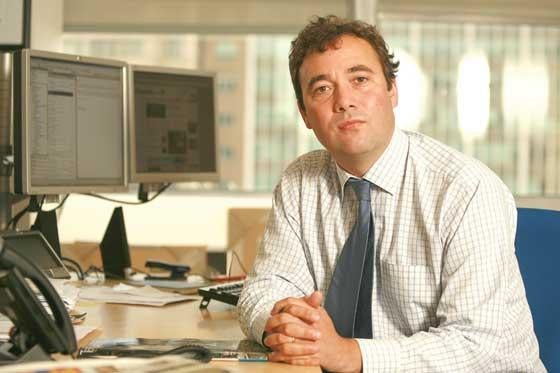
Will Lewis, who was tasked with handling the fallout of the phone-hacking scandal at News International (now News UK), has said of the affair: “One day, the truth will be written”.
Lewis, former editor of the Daily Telegraph, is currently chief executive of Dow Jones and publisher of The Wall Street Journal – both owned by Rupert Murdoch’s News Corporation, after his appointment in 2014.
In 2011 he was seconded from his role as group general manager of News International to help run the Management and Standards Committee (MSC) tasked with cleaning up after the phone-hacking scandal.
The scandal resulted in the closure of the News of the World and prompted the Leveson Inquiry into the culture of the press.
The MSC was also involved in disclosing evidence to the Met Police which resulted in dozens of journalists and their sources being prosecuted over payments to public officials.
News International’s compensation scheme for phone-hacking victims received 250 applications over 14 months before closing in April.
In an interview with the Evening Standard on Friday, Lewis said of his time heading up the MSC: “If you want to win a popularity contest in life, don’t do these kind of jobs. The company faced an existential threat and it has a moral purpose to speak truth to power.
“We have a purpose to tell readers and the public about bad people doing bad things but using legal methods. I did my bit to help with the legal process…”
He added: “I feel very sorry for the victims. And I was delighted almost every journalist tried was not jailed. One day, the truth will be written.”
Lewis, a former FT news editor and Sunday Times business editor, also revealed his disdain for the likes of Facebook and Google.
The web giants – known collectively as the Duopoly – have been taking the lion’s share of digital advertising revenue as media organisations struggle with falling sales and print advertising revenue.
“We’ve been useless in this industry at showing our value,” he told the Standard. “What’s dying are hopelessly outmoded business models built on a wing and a prayer when they thought digital ads would save us.”
He said of Google that it had “played an incredibly destructive role” in what was now the “grave problem” of fake news, adding: “When professional media disappears, bad things follow.”
He said: “I’ve given up a long time ago trying to work out what is Google’s motivation.
“In my darker moments, I wonder if they are just sitting amid so much money they may have lost the sense of why they came into existence to start with… Of course they are media companies.
“If they want to go back and just be a library, fine. But don’t take all the advertising money.”
- On Times editor and former Sunday Times editor John Witherow, Lewis said: “At the Sunday Times, I arrived thinking I knew everything. John put me right on that. He’s a brilliant but brutal editor. Nothing is ever good enough for him, so he ripped me up and put me back together again.”
- On News Corporation owner Rupert Murdoch, Lewis said: “He reads [The Wall Street Journal] every day. He’s a fan and he’s been brilliant to me in taking a real punt. He’ll get you when he wants to get you, and will expect you to know the answer. He’s challenging so you’d better know your stuff.”
Email pged@pressgazette.co.uk to point out mistakes, provide story tips or send in a letter for publication on our "Letters Page" blog
